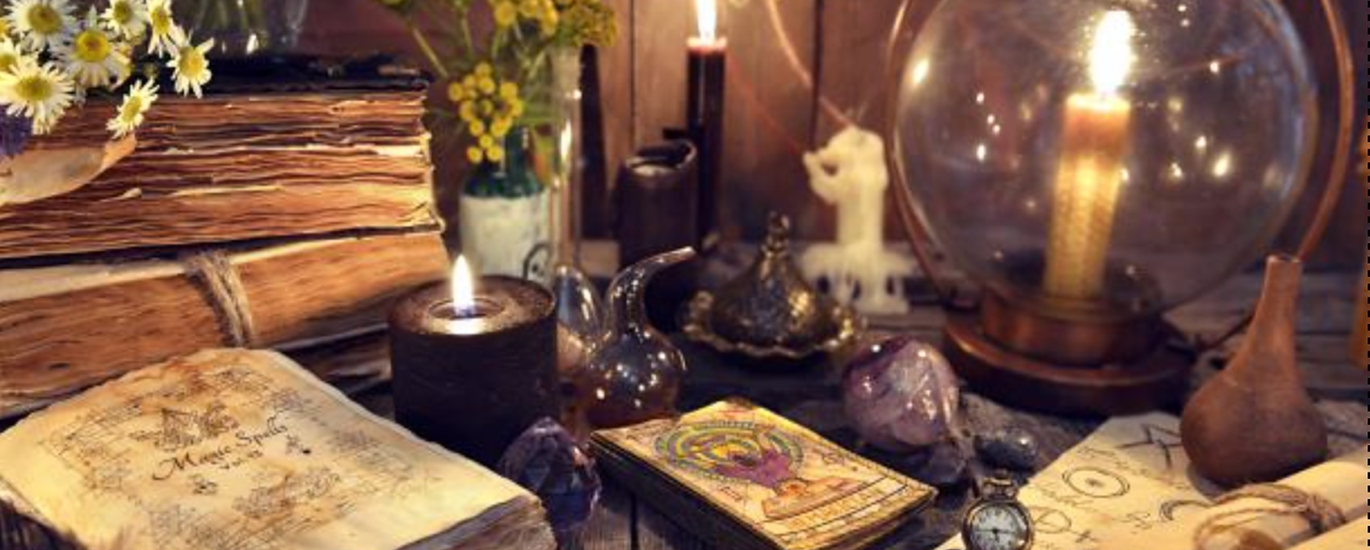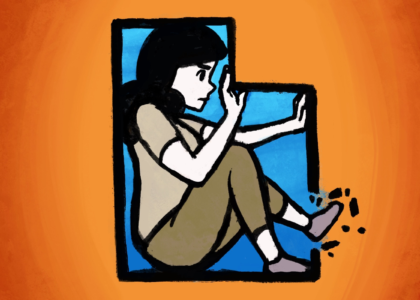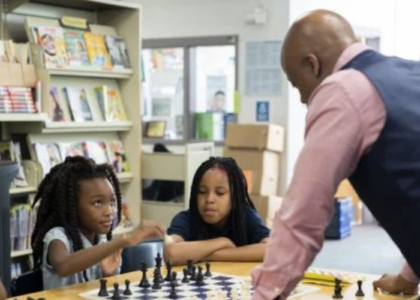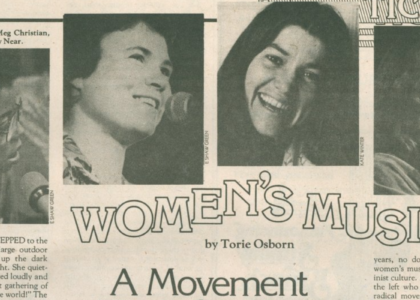“We are all just so much more than we realize.”
In the 21st century, witchcraft is trending. TikTokers, for example, sharing witch-based content, have amassed over 20 billion views under the hashtag “witchtok” and, as the trend grows, major retailers (including Sephora, Urban Outfitters, and many more) have eagerly started selling mystical crystals, spell books, and other witchy paraphernalia hoping to cash in on this growing faith movement. And yet all of this still leaves us with the question: who exactly are these self-professed witches? Some of you may even be wondering, is witchcraft actually real?
To help cut through misinformation and shine a light directly on what witchcraft looks like today, we decided to go straight to the source and fortunately found Kari – a present-day, practicing witch – who was willing to sit down with our podcast’s editor, Sam Rose, for a conversation about ritual, history, stereotypes, and the self-identified witches who still walk among us.
Our Guest
Kari
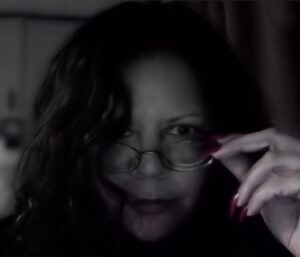
Kari (she/her) is a student of Jungian psychology, an active member of the Hyperian movement, and has been a practicing witch for over 40 years.
The Interview
Sam Rose Preminger: Could you give us a quick walkthrough of what being a contemporary witch actually entails?
Kari: Asking what a Witch is and what she does, is kind of like asking ‘how long is a piece of string?’
Witch is a very diverse word. Covers a LOT of territory, so I’d like preface by mentioning that what I say is based solely on my own experiences, my own learning, and my own interactions with other witches and traditions. For some witches, witchcraft it is a part of their religion, for others like myself, it is simply a practice and has nothing to do with a religion.
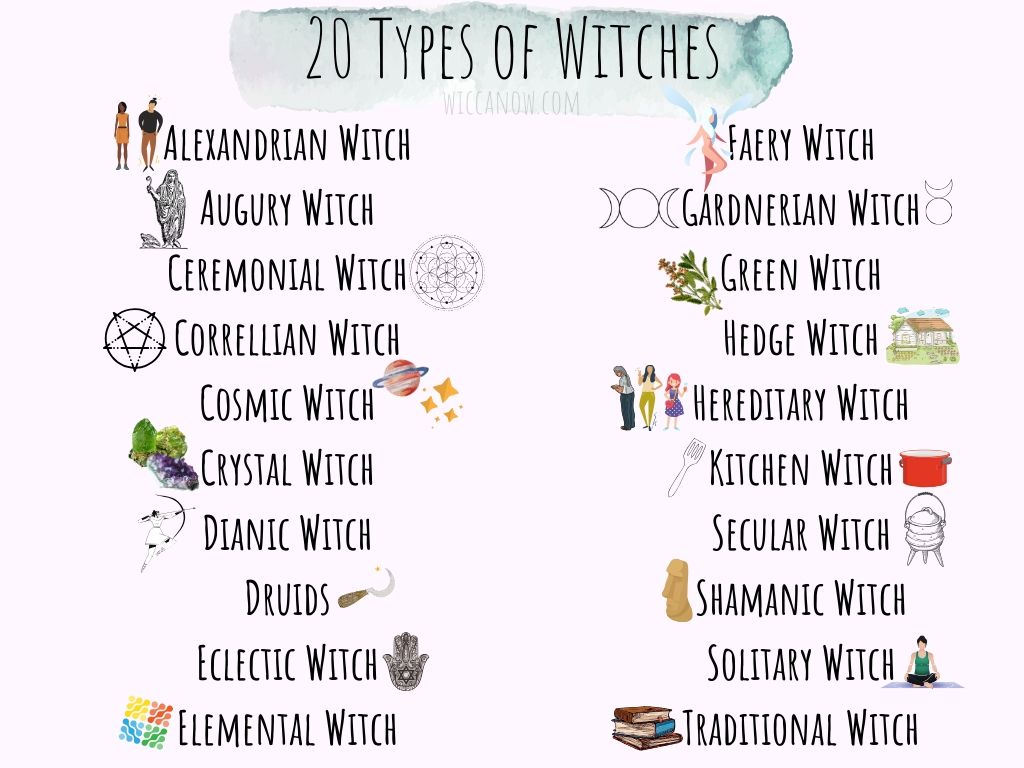
There are many, many practices and traditions within the scope of witchcraft. You have Gardnerians, you have Wiccans, you have Strega, you have the The Dianics — there are so many different traditions. It’s actually quite wonderful. I think the most widely recognized tradition by the general public, I think, would be the Wiccans because they have been very vocal so a lot of people are more aware of them. But even within the Wiccan traditions there is quite a bit of diversity.
Some witches you can recognize quite easily by what they wear. Most of them just look like anyone else, and you wouldn’t know they were witches unless they told you. Some engage in full blown ritual and some work within specific covens, others are solitary and work alone in whatever manner that they want to.
I guess the most common denominator is a deep respect for the feminine principle, and a deep sense of connection to and respect for nature, as well as the incorporation of their practices, whatever they entail, into the everyday life. Witchcraft isn’t something that is only practiced on a certain day, it is an integral part of who we are, and touches everything that we do in some way.
SRP: That sounds incredible. Okay, silly question but….do you have to be spooky 24/7?
K: Well, I guess it depends on how you define ‘spooky’. I know lot of non-witches that are pretty spooky!
But no, we don’t have to look or act like anything in particular. Some of your neighbors and people you interact with everyday might be witches. Your grocer or your bartender or whatever…they might be witches. The lady at the PTA meeting…who knows? You wouldn’t know it to look at them. We do the same things that everyone else does for the most part. It has gotten a lot better over the years, but there is still a stigma attached with being a Witch in a lot of places. At best we are treated with amusement or condescension, at worst we stand to lose our jobs, our spouses, or even our children. So understandably some witches are pretty private, they stay in—we call it being in the broom closet—others are quite visual and vocal about who they are. There’s no doubt about who they are. It all depends.
Personally, I just go about my business, do my thing, and let people draw their own conclusions, some of which are pretty funny. I’ll answer questions is they’re asked of me, as long as they are respectful and genuine. That has worked well for me so far.
SRP: Alright, one more slightly silly question for you then. I have to know: Are there actually any black cats or broomsticks involved?
K: It’s really not a silly question! These are very common conceptions. Once again, it depends…I’m sorry I have to keep saying that, but it really is true. There’s so much diversity in the community.
The broom, or besom as it is often called, is symbolic, and is used by some witches in rituals or some have it in the household, but it isn’t mandatory, nor do all witches use them. These are all tools that we use. You don’t have to have a broom to be a witch, it doesn’t define you or anything. They are symbolic, and represent various ideals and connections, but they have to resonate or speak to the witch on a psychological level to be effective. The real power behind any implement, comes from the witch herself. Technically, somebody could use a pretzel stick for a wand and with the proper mindset, have the same results as someone who was using an expensive, elaborately carved traditional one.
Witchcraft isn’t something that is only practiced on a certain day, it is an integral part of who we are, and touches everything that we do in some way.
A lot of witches like to make their own tools, and I think those are probably the most potent because they are connected and have meaning to the practitioner.
SRP: Have you made any of your own tools?
K: I make a lot of things, sure. Those are the ones that are meaningful to me. That’s what gives them power.
Let’s see, as far as the cats…most witches like cats! At least as far as I’ve seen, most of them like cats and some of them like dogs. Some have familiars; that’s what I assume you’re talking about? The concept of the familiar. Some have them. Some don’t.
Traditionally, a familiar is not a house pet though. It’s usually a wild animal that comes to the witch of its own volition and comes and goes as it pleases. Then again, some witches will assign a beloved house pet the role of familiar if they love them very much, and they’ll employ their pet to participate in their works and ritual.
I do have a black cat, but it’s got nothing to do with being a witch. His name is Jimmy and he’s just my little companion who lives with me and happens to have black fur. I prefer to adopt black cats when seeking a pet because, believe it or not, there is still a stigma against them in the minds of the general populace. I’ve learned from various shelters that they are often overlooked as pets because people still consider them bad luck or associate them with evil practices.
This is a very sad thing, but on Halloween some shelters won’t allow the adoption of black cats because there have been cases in which people would get them and kill them! Because of this stigma! It’s terrible, but superstition dies hard, even in a society that prides itself on its rationality.
SRP: That’s awful to hear, but I’m very glad there’s people like you out there giving the black cats some love.
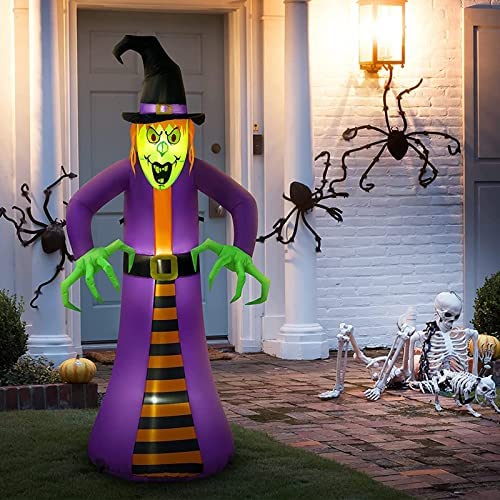
If like you said, witches can look like anything — they might be the person checking you out at the grocery store — then where do we get these cultural ideas of the green-skinned Halloween witch?
K: There was a time when an old woman—the elders—were considered a source of wisdom, but that was before the patriarchy. The image of the old green-skinned hag stems from the idea that old women are somehow frightening, malevolent, or suspect with what they do. It’s a notion that still lives in our society today. In some cases, the attitude had to do with getting rid of a woman who was considered to be no longer of value, because she could no longer bear children or wasn’t considered attractive. We can still see it in our obsessively youth-centric society today. Women are treated very badly in a lot of places. If you see an older man, he is offered the mantle of respect, experience and wisdom, but an old woman? People feel disgusted when they see her, or they make fun of her. Some people are even afraid of her.
If a woman were unmarried past a certain time frame, chose to live alone, was considered too independent, too outspoken, or didn’t prescribe to society’s notion of what a woman was supposed to be, she was either disempowered or vilified. Especially if she was old.
For some women in that position, especially if they were ostracized in some way, the only way to stay alive was to play upon the superstitions of the villagers and gain a reputation that made them leave her alone. But that was kind of risky because that same tactic could be a death sentence if it unsettled the wrong people or somehow threatened the status quo too much.
SRP: It’s becoming pretty clear that a lot of those ideas of the witch that we might get from media and Halloween decorations are pretty far off the mark.
K: Yeah. Most witches are very nice people and they look just like everybody else. I mean, sure some are old ladies, but…
SRP: There’s nothing wrong with that!
K: There isn’t!
SRP: What are some of the other common misconceptions about witches and witchcraft that you’ve come across? Would you like to correct any of those for us?
K: Yes, I would—I do not worship the devil. I get that a lot. Modern witchcraft is based on ancient pagan practices. The devil, as we commonly portray the image, is actually based on the pagan horned god that was taken and demonized by the advent of Christianity. But the devil is a Christian concept. Most witches I know don’t even recognize such a creature, much less worship it.
I guess it ties in with another question I get, which is “Are you a good witch or a bad witch?” I always say that very much depends on who you ask. Once again, witches are a highly diverse group and follow different codes. You’ll hear a lot of them mention something called “the law of 3”, which says whatever you send out will come back three fold. Other witches have no such constraints about what they will and will not do, so you can’t make assumptions. I’m personally of the latter variety.
So yes, I am a witch, but whether or not I’m a “good” or a “bad witch depends entirely on the situation and or individual in question. I am not malicious by nature. I don’t go around trying to harm people or curse their cattle or whatever people think we do.
Oh, and there’s a little side note that people might find interesting. People think that only women can be witches, which is not at all true, there are lots of male witches. And a male witch is called a witch, not a ‘warlock’. If you call one a ‘warlock’ they might get really mad because the word ‘warlock’ comes from an Old English word which means liar, oath-breaker, traitor. It’s not a good name. If you come across a male witch, just call him a witch and it’ll be fine!
SRP: That is very good to know, I had no idea. Let’s rewind for a second: how did you first come to witchcraft?
K: I was very very young, actually I was in grade school, and it was started by my anger at and disillusionment with the hypocritical and patriarchal position of the Catholic Church (that’s what I was raised under).
I had a big problem with god. I didn’t like him, I thought he was a bully. Sadistic, like a little kid burning ants in the garden for fun. It just didn’t make sense to me. From everything I was told, he was supposed to be this kind, loving being, but he struck me as being very cruel and vindictive. I was supposed to obey him, but the more I learned, the more I disliked and distrusted him.
Some of the stories…I mean, look at the Noah’s ark thing. He drowned everyone and everything except for a handful of people and animals because he was annoyed. How does that make sense? If we was all-knowing then he would know that there was going to be a problem, so I can only assume that he did that because he wanted to. And if he wasn’t all-knowing, then he’s a liar. I wasn’t happy with it.
And Adam and Eve, that was a pretty bad one. Eve got blamed essentially for the downfall of humanity. So you have this god who puts this tree here and says ‘I’m going to give you free will, but don’t eat from there.’ He had to know they were going to do that. Even I knew that as a little kid. You can’t tell people not to do things, not like that, it’s a temptation. He just didn’t seem to have anything to do but go around scaring people and setting them up to be punished. It’s like he wanted to punish them, and then insist that they love and obey and worship him for it. He sounded more like a “devil” than god to me.
the devil is a Christian concept. Most witches I know don’t even recognize such a creature, much less worship it.
The only female figure of any importance was that of Mary, who was nice, but she was a very docile and subservient figure to this father-god. Even the saints who were deemed most important were all male. The closest we had was a warrior maiden figure, Joan of Arc, but she was burned.
Needless to say, none of that sat well with the church. I got in a lot of trouble, but the takeaway was the order of things, and the order of things was that men were innately superior to women.
SRP: Wow. That sounds like such a hard message to be receiving as a child.
K: It’s unhealthy! I feel sorry for the young women that are brought up with that. It gives you such a negative opinion of yourself as a person. It’s kind of like programming women to be inferior from the start.
SRP: And it’s just so frustrating to think that so many young women are still receiving that messaging.
K: Yeah, it is. It’s bad.
SRP: How did that male superiority you mentioned manifest in your own church?
K: I wanted to be an altar boy like my brothers. I actually liked the church, I liked the stuff in it—it was very pretty and it smelled good and I liked it there. I wanted to be an altar boy like my brothers were and I was told that because I was female, I couldn’t do that. Basically because I was somehow tainted, I couldn’t touch the holy items because it would offend god. That made no sense; you made women, but you don’t like them? I don’t understand these people! There was just this constant undercurrent that women were to blame for the downfall of humanity and they were easily manipulated and spiritually weak, and that all got passed down to us. It just came out in so many ways, but that in particular was one I remember.
I had an innate sense of spirituality. I always believed there was more than what we saw. So I decided I didn’t care, I didn’t want anything to do with them anymore. I think that the whole ‘not touching the stuff thing’ has probably changed within the church by now—I really don’t know. But still it’s a patriarchal religion, there is still this undercurrent of male superiority, and it’s offensive and extremely unhealthy.
It would take more time than we have to unpack all the examples, but all of the Abrahamic religions are patriarchal. Innately by their nature, by being what they are, they place women in the inferior position.
SRP: I take that witchcraft is a little bit different?
K: A lot, yeah.
SRP: Where did you first learn about witches, and what drew you into learning more?
K: At a very early age I’d always been fascinated by the occult, history, psychology, mythology, and folklore, and eventually I got hold of a book on modern day witchcraft. I think I was around 13 or so at the time. Books like that were very hard to find back then, which sounds weird now when you can just walk into a bookstore and find them all over shelves, but it wasn’t like that then. That was very unusual and a rare occurrence. Like we said: I was raised in a patriarchal religion and women were expected to be subservient towards an irrational and misogynistic deity, so when I came across ideas of female divinity, the inherent feminine empowerment really appealed to me. It had never crossed my mind, the idea of a goddess.
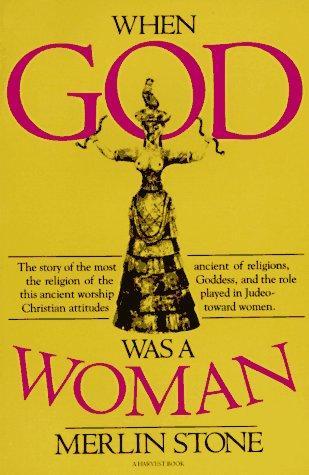
That was a real new thing, because god was a man. God was a male. So, the idea that this was possible…I found it very appealing and it led me to investigate related historical events such as the various witch trials in Europe and North America. I could see a pattern throughout history, you can actually see the decline of women’s roles and status and the pattern of female persecution and demonization that came with the rise of the patriarchy.
Over time, I found books written by feminist authors like Z. Budapest, Margot Adler, Erica Jong, and Merlin Stone (she wrote a very good book called When God Was a Woman and I’ll recommend it to anyone that’s interested in reading about the history of feminine religion). These books inspired and influenced me a great deal.
SRP: How did finding these things and then leaving your religion affect your relationships with your family and community?
K: I didn’t have a great relationship with my community because I had very different ideas than what they were trying to teach me to have, so I didn’t really care what they thought. I was also very lucky that I have a good relationship with my family as far as being allowed to be my own person. My mother was a wonderful woman who really did encourage us to be our own people and to strike out and learn things and experience things. They were used to me being kind of contentious if something didn’t sit right with me, so I guess it probably didn’t surprise them to tell you the truth. They loved me and although they didn’t actually support it, they didn’t give me a lot of trouble as long as I didn’t get too obnoxious with it.
As far as the church went, after a few years we fought constantly. I also went to Catholic school which was twice the fun. I was constantly in detention. They got tired of me, I guess, and I had a weird intervention by the parish priests—I used to call them the holy hitmen—and they told me under no uncertain terms to leave. Basically, I was kicked out for heresy, I guess.
SRP: Oh my gosh!
K: Yeah, I don’t care. I was fine with it. I had no intention of hanging around anyway.
SRP: Good, I’m glad you’re out of there. Circling back a little bit, what exactly do those ideas of female divinity and feminine empowerment mean to you?
K: To me, they mean the freedom to recognize and express all that is powerful, strong, wise, and optimal within the condition of being female. To not be stifled, condescended to, shamed, or having to hide. To know and honor ourselves and one another as aspects of the divine feminine, and to meet the masculine as an equal that is treated honorably and respectfully in our societies.
The goddesses and gods are archetypes to me, so I look to the archetypes of the goddesses of old. One of my favorite archetypes and one of the most powerful for women I think—particularly women that have come out of abusive relationships…I used to work on a crisis hotline and one of that most powerful archetypes was that of Lilith. If you don’t know the story, she was said to be Adam’s first wife, before Eve. She refused to lie under him, and insisted on being his equal. So he wasn’t having it and I guess god wasn’t into it, so she went out on her own only to be turned later to a demon. A child-killing demon, I believe is what they said she was.
And then after that Eve came along and she did what she was told except for the whole apple thing. That was supposed to be the tree of knowledge though, so technically she did a good thing—what’s wrong with knowledge? Knowledge is good! But she was a more docile figure, she was created from under the rib, she was to be the helpmate and all that.
Then we have the archetype of the wise woman and fierce dark mothers who take on forms such as Cerridwen, Hecate, and the Crone (one of my favorites). There’s Kali and Pele who embody the destructive power of a woman’s righteous anger.
Or the archetypes of the Earth Mother, they are the embodiment of feminine creativity, nurturing and our life-giving aspects. There are Wild Woman archetypes such as the huntress Artemis, who is fierce and free and didn’t answer to any man or man-made society. Or Sophia, the philosopher goddess, and Athena, the warrior, who was not only skilled in battle but was also the ultimate logician and tactician.
There are so many powerful female archetypes in existence. But we hear very little about them, and the ones that we do hear of, have been so demonized or domesticated during the rise of the patriarchy that you couldn’t recognize them.
When we engage with these archetypes, especially during this time when women are still objectified and treated as tertiary and second class, no matter how subtly it is being done, it is very empowering.
People really like to think that the oppression of women is behind us in our society, but aside from the gross disparity in pay, and the blatant objectification, you just need to listen to some of the vernacular, some of the words that people use casually, that they find acceptable, and you can see that we are still being denigrated.
If a man is seen as being weak or cowardly, he is called “a pussy”. If a woman expresses anger, regardless of how justified it may be, “she must be on her period”. If a man is expressing emotion, he is said to be “acting like a chick”. If a woman is strong and assertive, she is called “a bitch” or a “ball buster”. If she is successful in her field, even if she had to work twice as hard to get there than her male counterpart, it’s suspected she must have “slept her way to the top” as if it were impossible for her to achieve success by her own merit.
There are so many powerful female archetypes in existence. But we hear very little about them, and the ones that we do hear of, have been so demonized or domesticated during the rise of the patriarchy that you couldn’t recognize them.
Men are encouraged to sow their wild oats as it were, to be sexual beings and have as many sexual partners as possible, it is not only accepted, but is seen as proof of his virility and manhood. He’s called a stud. If a woman is sexually expressive, she is considered promiscuous, she becomes an object of ridicule, is called a slut and shamed. If she is disrespected, or even raped, she was “asking for it”. How many times have you heard that one?
All of this is so common that people don’t really bat an eye when they hear it. And that’s because these Abrahamic patriarchal ideas have been integrated, infected our society’s thinking. Things have gotten better, they’ve changed, but not half as much as people believe. And that’s just here. In other places, women are still burned as witches or killed for disobeying a man. We would consider such practices barbaric and unjust, yet we still perpetuate the thinking that creates such kinds of acts. We have a lot of work to do.
Words have power, they shape how we see and relate to those around us. When we integrate these words into our speech, we create a frame of reference and program ourselves to find them acceptable to define what we perceive to be true. It’s very important that we become consciously aware of the words we use and the concepts to which we casually give credence.
This all goes to say that yes, while great strides towards equality have been made, yes, there is still an ingrained undercurrent of misogyny and an idea of male superiority that infects our society. It’s still inferred that women are weak, irrational, incapable, and invariably need some man to keep her under control.
SRP: Wow—thank you for sharing all of that, Kari! I was just glowing listening to you describe all the goddess archetypes, and furious hearing how our language still oppresses people. Thank you for sharing your knowledge though and, if it’s okay, I’m going to try to pull just a little bit more out of your brain.
Earlier you mentioned those historical witch trials that you studied. Were those actually tied to the practice of witchcraft? Were the victims of those trials actually witches?
K: Very few, actually. Most of the trials were political in nature. You have to understand that these “confessions” that they got, they got them while women were undergoing the most brutal forms of torture. It’s unbelievable the things that were done to them, so a person would confess to pretty much anything if they thought that it would make them stop.
Most women who were killed were midwives or good at healing or herb craft. Maybe some of them made a neighbor overly jealous, some men found the woman overly attractive so she must have bewitched him of course, or some of them were too vocal in their opinions or too independent minded. What happened more often than people realize is that the woman owned land or goods that someone in power wanted to take from her, and this was an expedient way to get it. The trials also were some ways to solidify someone’s position and validity or cover their own sins and transgressions within the community, especially if they were a religious leader. Women were not only chattel—they made excellent scapegoats.
SRP: That stuff is so fascinating, but infuriating!
K: Yes, it is. It is. Most of those women were innocent of whatever it is they were accused of, they didn’t do anything.
SRP: Good to know, but we aren’t here to talk about women who probably weren’t witches—we’re here to talk about people who definitely are witches! Could you tell us more about what your present-day practice of witchcraft is like?
K: Sure. Traditionally I am what would be called a Hedge Witch by definition. A Hedge Witch, also known as a hedge rider or Cunning Woman, in a nutshell is one who is skilled at herb craft and who “walks between worlds”. It sounds woo-woo, but it’s just someone who connects the intangible to the tangible. Somebody who works heavily with matters of dreams, visions, and the doings of the unconscious.
They are similar in nature to the Shaman (I think this is something most people would be familiar with) in that first and foremost we are healers. The Shaman and Hedge Witches also acted as the psychiatrists for a village way before psychiatry became a thing. We are also solitary, independent, and inclined to be scholarly. We have our own practices, so that will vary from Hedge Witch to Hedge Witch, and are also held to be somewhat cantankerous. We don’t play well with others, but we will when we have to.
Technically though, I’m a Jungian Witch I guess. My work is not only of a practical nature, but I’m also concerned with the psyche. For me all “gods” and “goddesses” are archetypal manifestations of the collective unconscious that can be tapped into and worked with with the conscious mind.
Since the unconscious speaks the language of symbols, I employ symbols and ritual for the psychodrama. It’s the way I’ve found helpful for tapping into my own unconscious, as well as the collective archetypal divine feminine. It helps me resonate with my higher and Shadow self (higher and lower selves, we are not just one thing, we are both things. It’s important to integrate them), and it helps me evoke specific aspects of my own mind and psyche. I’ve found that empowering.
SRP: Pause for a moment. I’m going to ask you to define some of these terms real quick for us. What exactly is herb craft?
K: It’s basically herbology. That’s all, it’s a fancy way of saying herbology. It is possessing the working knowledge of the properties and lore of herbs that can be used for healing or protection or whatever. More succinctly put, I am an Herbalist with a metaphysical bent.
Women were not only chattel—they made excellent scapegoats.
SRP: Got it. And what does it mean to “walk between two worlds”?
K: It sounds so intense! It’s just somebody that is good at or has the knowledge, understanding, and skill pertaining to dreams, inner work, the unconscious mind, both the individual and the collective, and the understanding of how they connect and function in the waking world. And it’s someone who is able to visit these realms, by a variety of means, lucidly and by choice. Some people think these realms are external actual places, and others believe they are internal, which is what I believe, they are internal places.
SRP: How do these practices of herbs and dreams and goddess archetypes also fit into your daily life (when say, you’re also doing your grocery shopping, or watching Netflix)?
K: As I mentioned, witches are just people, I do the same things non-witches do in my everyday life. I go grocery shopping, enjoy movies, mop my floors, do the laundry…all that stuff. The difference I suppose is that these activities are also infused with my awareness of the interconnectedness of nature and of reality. So when I pick vegetables from my garden, I am aware that these plant are living beings, I am grateful for their contribution to the well-being of my body, and I am sure to thank them for it (even if it looks funny). I also will evoke or invoke various archetypes when I need to. When I dream, I am generally lucid and aware that the images flow from my personal or the collective unconscious, so I am better able to interpret and understand what they are telling me.
People think about things like divination or seeing into the future—the future is not set in stone, we don’t see the future, what you see is the most logical outcome of a series of events if it follows a given course. Everything has a pattern to it. The unconscious is very good at putting together patterns, so if you can get in touch with that you can have an idea of what’s going to happen. It’s not magic, it’s psychology and it’s logic. I spend a lot of time on looking inwards and making the connections to the outer world.
SRP: That’s amazing, and I know you’ve mentioned you’re a bit of a loner but do you have a sense of what the witchcraft community looks like today?
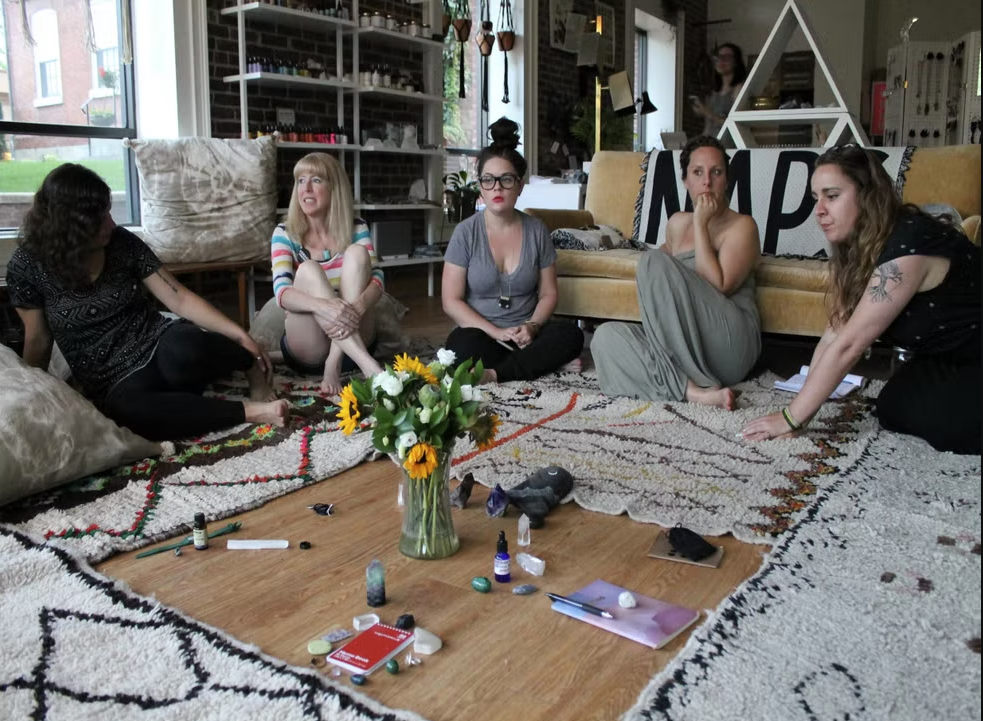
K: They’re actually very active and thriving. I do have some friends that are much more extroverted than I am and are out there in the fields all the time, so I get a lot of news from them. I am a solitary practitioner by choice, it is just my nature, but I have joined in on public gatherings. I find them rather tiresome because I am an introvert, but they are also very powerful, very moving, and can be a lot of fun actually.
A number of witches do get together to celebrate the different seasons and pagan holidays. The neo-pagan community is quite large, and witches are a part of that, on the whole is very open-minded and accepting of others’ practices. So, unless it is an event held by a specific coven for its own members, it is not unusual to find a very diverse collection of traditions at any given gathering.
SRP: That’s so cool! I know we’ve already tapped into a little information about symbols and rituals—you mentioned the brooms, or was it besoms?
K: Yeah, I’m probably not saying that right. I never learned how to say it!
SRP: Well, if we’re wrong, we’re wrong together at least. But what do these symbols and rituals mean to you? Why are they so important?
K: In our society we place a very high regard on the conscious mind, on consciousness—and it is important of course—but the unconscious mind is the most powerful and complex driving force we have as human beings. It actually influences our thoughts, our actions, our behaviors. There is a constant flow of dialogue from it to the conscious mind, and it works nonstop. It even shapes our identities and conscious responses, but because it’s unconscious we don’t know that. It’s important to know what’s going on back there; if you don’t, you’re not really in control of your life, not consciously.
You hear people talk about the ego and how it’s a bad thing—the ego is not a bad thing! If we have no ego, we have no ‘I’, we have no sense of self. We want that and we have to have that in order to be conscious, but the ‘I’ is just the tip of the iceberg. Our unconscious mind is the greater part of who we really are, even though we aren’t aware of it.
To me, it is crucial to the raising of consciousness and consequently to our evolution (both individually and collectively) to connect to this unconscious, to learn its language, and to bring darkness to light, as it were, so that it can be consciously integrated. This is the process that Jung called individuation and it’s seen as the mechanism behind all of the striving of a sentient beings. This is what we’re working for. This is what we do.
Symbols and rituals, they help me understand the language of my own unconscious mind. It’s a way to connect with my own divinity as well as the divinity of the human condition. Because we are all divine. All of us. We just kind of forgot, but we are. The unconscious, both the collective and the personal, speaks in symbols so by bridging that gap of seeking to bridge that gap, it forwards our thinking and our evolution. We are all just so much more than we realize.
SRP: That is so beautiful, thank you for sharing that with us. I’m going to let you go soon, but before I do let’s get down to brass tacks. How can witchcraft help fight patriarchy?
K: It already has. It’s being done through the amazing, consciousness-raising feminist women who practice it. Many of the witches that I’ve met and that you’re apt to meet have come from patriarchal belief systems, and they’re looking for self-empowerment. You will often hear them say that a goddess or some form of the divine feminine, called to them. Eventually they find that call is part of a much larger picture.
When they embrace the divine feminine, they begin to understand and celebrate their own divinity, as well as that of our sisters. They learn to find their own voice, to speak out, to say “no more” to the status quo. They learn that they are not powerless, that they don’t need to be dependent on a patriarchal perspective in order to have a sense of who they are. In other words, they reclaim themselves and take part of being integral to the cycles and the balance of this world.
I remember reading a long time ago (I think it was in a Ray Bradbury novel), a quote that said,
“A Witch is born out of the true hungers of her time…
The things that are most wrong here summoned me. ”
And I never forgot that. I forgot the book, but I never forgot that quote. “The things that are most wrong here summoned me.”
I think that there are witches because there need to be. I think that the patriarchy has created such an imbalance of power, such gross and wholesale destruction, that not only our collective psyches, but our very planet cries out. It’s like the human collective “summons” us.
Regardless of how urbane and evolved our societies like to think themselves to be, there is still the raging inequality, and injustice placed upon women and the divine feminine principle that is inherent in both the human condition and in our environment that’s been generated by the rise of the patriarchy. It has to be addressed and righted. That’s the only way we’re going to be whole.
SRP: I wish the circumstances were different, but I’m very grateful that you have been summoned. Thank you so much, Kari!
A Witch is born out of the true hungers of her time…
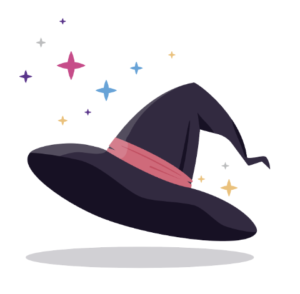
The things that are most wrong here summoned me.
Listen to the Episode
&
Share your Comments with us below!

